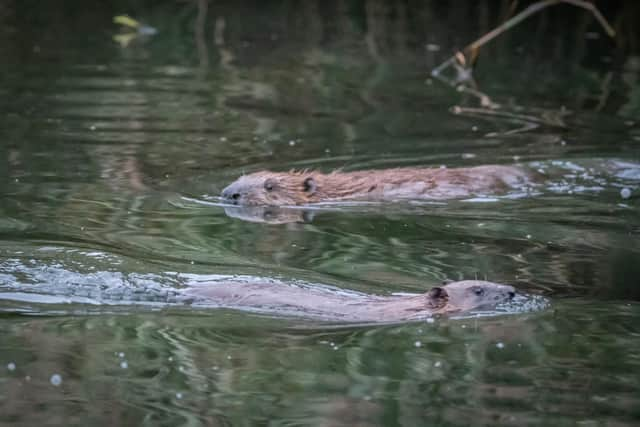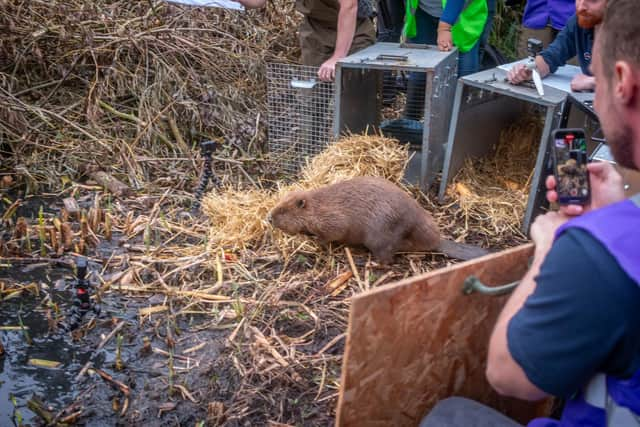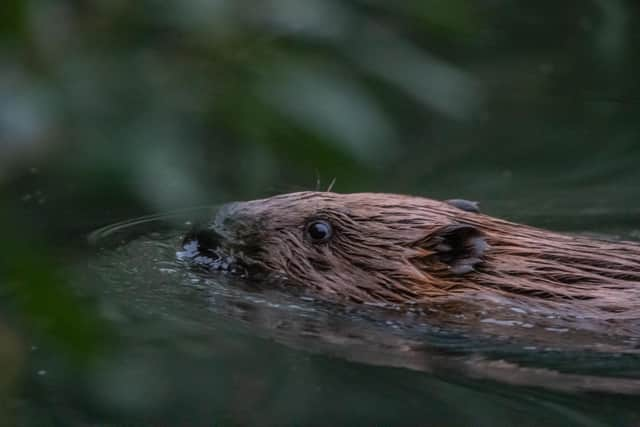Dammed if you do: Scotland’s Asbo beavers begin new city life in London
The species, once native to the UK, has been absent from the area since being hunted to extinction around four centuries ago for their skins, meat and oil.
Now the dam-builders are back in the city, thanks to a pioneering project that aims to boost biodiversity, help tackle flooding and allow the public open access to rare wildlife.
Advertisement
Hide AdAdvertisement
Hide AdA family of Eurasian beavers has been released at Paradise Fields, an eight-hectare fenced area of woodland and wetlands in urban Greenford, Ealing, as part of a collaborative reintroduction project involving local nature groups and beaver experts.


London mayor Sadiq Khan has welcomed the new arrivals and said he was “proud” the capital city was being turned into “a wildlife haven”.
“I am delighted to welcome back beavers to West London for the first time in 400 years, with the support of my Rewild London Fund,” he said.
“We are facing climate and ecological emergencies worldwide, but we have the power to make a difference and I am committed to ensuring that London is at the forefront of reversing the trends of declining biodiversity and the destruction of nature.


“I’m proud that we are turning London into a wildlife haven, as well as making the city more resilient to the effects of climate change as we work to clean up our city, re-establish lost species and reconnect people and nature, building a greener, fairer city for all Londoners.”
Beavers are valued for their positive impact on the environment and abilities as natural ‘ecosystem engineers’, but the animals can be a blight on farms and forests, damaging trees and causing flooding on agricultural land.
Many farmers and landowners in Scotland, where the species has been granted protection following successful reintroductions, have been calling for the government to remove them.
In previous years licences have been granted to cull troublesome animals, dubbed Asbo beavers, but there is now a big effort to remove and rehome the worst offenders.


Advertisement
Hide AdAdvertisement
Hide AdThe Ealing beavers have been relocated from wild populations in Scotland by experts at the Beaver Trust and Five Sisters Zoo after public consultation and a special licence from UK government agency Natural England.
They will be monitored by Ealing Beaver Project staff and volunteers as they establish their new home in the enclosure, which will be temporarily closed off to let the rodents settle in.
After that, people will be able to visit the site under supervision for another month, before full public access resumes.


Dr Sean McCormack, vet and chair of Ealing Wildlife Group, said: “It’s unbelievably exciting that after a lot of hard work and volunteer effort to make this happen we’re welcoming beavers back to Ealing.
“We’re excited to show they can have benefits in the urban landscape, not only for wildlife but for people too.
“Their activities here over the coming years should provide effective nature-based solutions to urban problems such as flood mitigation and improved water quality.
“We’re also excited to see the wildlife that shows up on site and the effects that having nature on your doorstep can have for urban communities.”
Comments
Want to join the conversation? Please or to comment on this article.